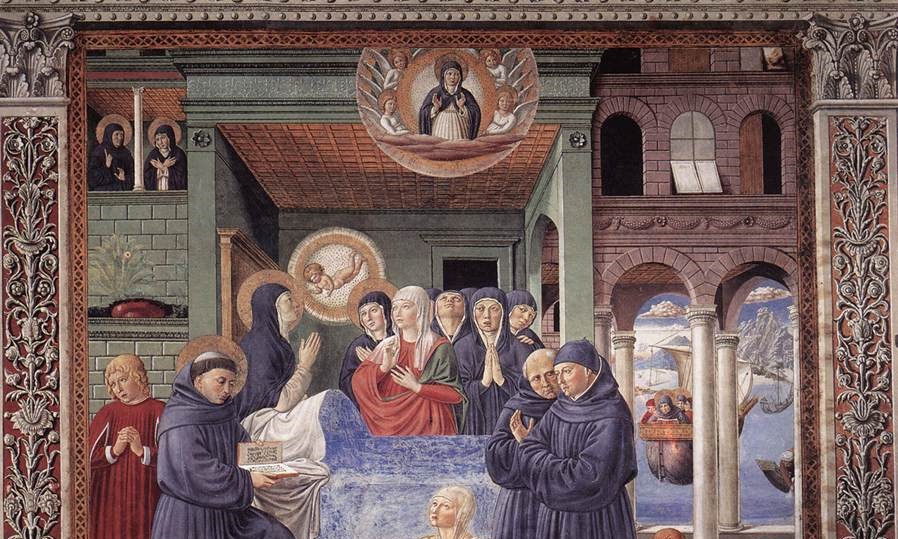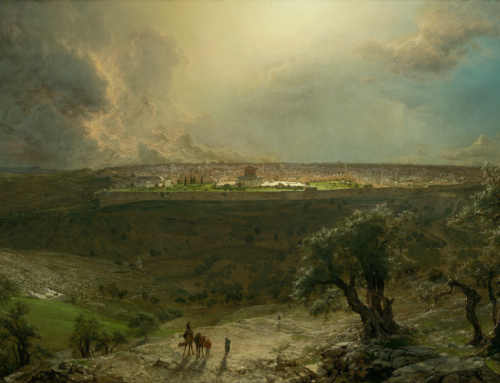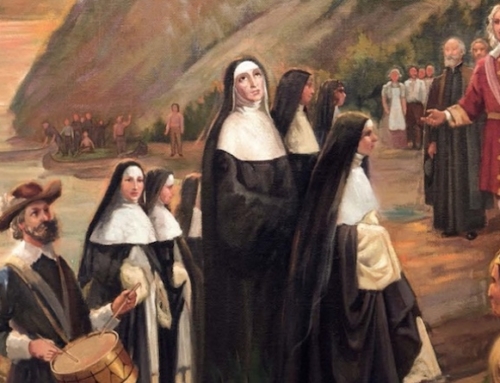What do Emmylou Harris and St. Monica have in common? The bluegrass singer and the mother of St. Augustine both understood death. The song “All My Tears” (actually written by Julie Miller but first recorded by Harris) and Monica’s dying words show the Christian attitude to death.
For Harris and Monica the site of their burial doesn’t matter. Monica fell ill while visiting Italy, far from her home in North Africa. On her deathbed, she told her children, “Here you shall bury your mother.” When Augustine’s brother said he hoped she wouldn’t die in a strange country, she told them to bury her “body wherever you will; let not care of it cause you any concern.” Why didn’t she care about the location of her grave? Emmylou Harris gives us the answer in “All My Tears” (this is Harris’s version, but I also like this cover). In the refrain, Harris sings:
“It don’t matter where you bury me
I’ll be home and I’ll be free
It don’t matter where I lay
All my tears be washed away”
Harris and Monica don’t care where their bodies lie because they know they’ll be home with Jesus. Although they die in a strange country, they’ll be home—“in my father’s arms I’ll be,” as Harris puts it. Their attitude reminds us that this world isn’t our true home. We are always strangers and exiles in this world (1 Pet 2:11). We weren’t made for the temporary and passing things of this world. We were made for a home in heaven. Harris and Monica have their priorities straight; they recognize that “here we have no lasting city, but we seek the city which is to come” (Heb 13:14).
They can so fearlessly leave the world where “temporary riches lie” because they know that their Redeemer lives (Job 19:25). Harris can leave the true but fleeting beauty of this world because “sun and moon will be replaced with the light of Jesus’ face.” She can sing so confidently “All my tears be washed away” because Jesus will wash them away himself. The faith filled Christian doesn’t have to fear to meet Jesus, Harris reminds us, “for my Savior knows my name.”
Harris and Monica don’t care where they’re buried. Does that mean we shouldn’t care about our beloved dead or where they are buried? Not at all! The pagan Romans noted (with horror) how attached the early Christians were to their dead, visiting their graves and praying there. The Church always keeps the faithful departed close to her—both physically with cemeteries in churchyards or other easily accessible locations and spiritually in her prayers, especially in the Mass. The month of November is especially dedicated to remembering our beloved dead.
And Harris and Monica hint why. In heaven, Harris hopes “the wounds this world left on my soul / will all be healed, and I’ll be whole.” The world wounds our souls in innumerable ways both large and small with worries and sins. We usually leave this world not yet whole, not totally ourselves, not yet healed for life in our heavenly homeland. There is, however, healing in purgatory. The mercy of purgatory is that God cleans us up, heals our wounds, strengthens us, and transforms our broken and imperfect lives. But God involves our friends and family in the purgatory process.
Death doesn’t divide Christians from each other. While the physical separation is very real and very painful, we aren’t cut off completely. As Monica made clear to Augustine, prayer unites us with them. The last things Augustine records her saying, Monica’s dying wish, was “that you remember me at the altar of the Lord wherever you may be.” Wherever we are, prayer joins us to those who have “died in the Lord.” Even if we can’t always visit their graves, we can remember them in prayer, above all at the altar of the Lord, joining our prayers to the prayer and sacrifice of our Savior. May we always remember our loved ones at the altar of the Lord.
✠
Image: Benozzo Gozzoli, Death of St. Monica







